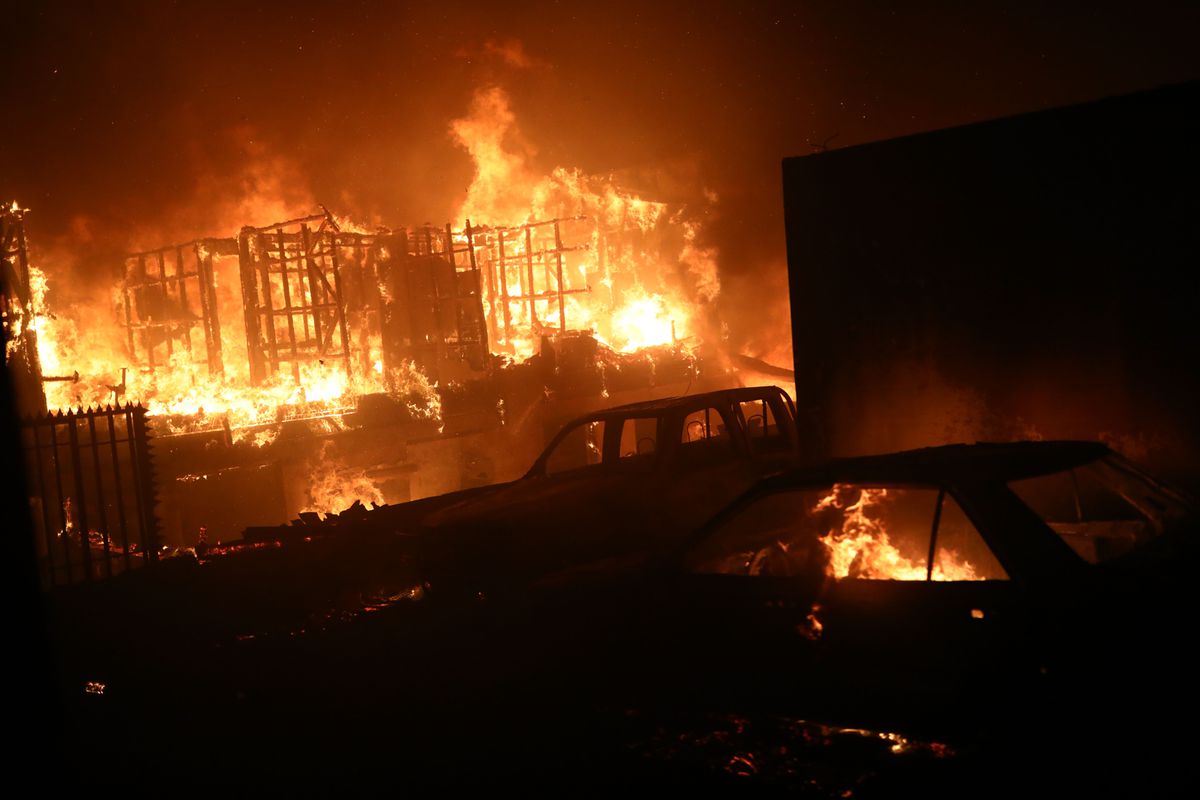Enlarge image
Attribution researcher Friederike Otto
Photo: [M] Joakim Stahl / SvD / TT / IMAGO
It was always hot in summer.
And there have always been storms, floods and droughts - and yet the climate crisis is changing the weather.
Most importantly, it makes extreme weather more likely to occur.
The German physicist and climate scientist Friederike Otto has set herself the task of calculating whether such events are more likely and by how much.
And has co-founded a new branch of research for this purpose: attribution research.
In her doctoral thesis she combines philosophy and climate models
Otto was born on the coast, in Kiel.
In Berlin she studied physics and did her doctorate in philosophy of science on the quality of various climate models.
"A fundamental problem," wrote Otto in her dissertation, "is the non-linearity of the climate system, which on the one hand makes it impossible to fully understand the system and on the other hand requires non-linear models in which it is hardly possible to identify causal chains." What was missing was a suitable calculation method.
In 2011 Otto went to the University of Oxford to develop just that.
The German Weather Service defines attribution research as "analysis and evaluation of the possible influence of climate change on extreme weather events such as droughts, heat waves, cold snaps and extreme rainfalls and their communication" with the "assignment of statistical certainty". The method of attribution or association research is statistics. Current weather data - with variables such as temperature, precipitation, air pressure, humidity or wind strength - are compared with the data from a parallel world. This parallel world only differs in that there are no man-made greenhouse gases in it. The discrepancy between the data from our world and that parallel world represents the contribution of climate change.
The principle is simple, the implementation is complex.
According to Otto, weather models with different parameters must run over long periods of time - over several years - for both scenarios to predict climate development.
Very high computing power is required for such calculations.
The role of climate change is to be assessed quickly and specifically
Together with the recently deceased Dutch scientist Geert Jan van Oldenborgh, Otto launched an initiative: The aim of the World Weather Attribution Initiative (WWA), in which scientists from international institutes are involved, is to »provide solid assessments of the role of climate change to deliver to an event «, quickly and specifically.
Otto is one of the co-authors of the new IPPC report.
Since October she has been working at the Grantham Institute of Imperial College London.
The most important thing about her work, Otto describes to SPIEGEL as “answering questions that people outside of science actually ask.
In such a way that the answers are scientifically correct and useful at the same time. "
But what can be calculated at all?
more on the subject
Heat kills marine animals: "Like in one of those post-apocalyptic films"
Extreme weather: 54 degrees in California - and the forest fires spread
Two examples: In June of this year, an extreme heat wave hit the western United States and Canada.
Such an extreme weather event would be at least 150 times less common without man-made climate change, according to the WWA's analysis.
The heat wave would have been about 2 degrees Celsius less hot if it had happened at the beginning of the industrial revolution.
In a world with global warming of 2 degrees - and this could be as early as 2040 - a comparable event, which is currently estimated to only occur once in 1000 years, would occur roughly every five to ten years.
In July 2021, a devastating flood disaster occurred in western Germany that claimed the lives of more than 180 people.
The WWA calculated: Climate change has increased the intensity of the heavy rain by a value of 3 to 19 percent.
The probability that such an event will occur today has increased by a factor of between 1.2 and 9 compared to the pre-industrial climate.
Abstract risks are linked to specific figures
Attribution research cannot offer a generally valid answer to all questions of climate development.
But: It can assign concrete figures to abstract risks, it makes the climate crisis tangible.
The ability to identify perceived extreme weather exceptions as part of a statistical order can help governments and public authorities to take smart action.
And attribution research may even become important in court: when it comes to which actors have to be assigned which responsibility for the climate crisis.
How the climate crisis can be measured will continue to occupy us in the future.
How does Friederike Otto view this future?
"With confidence and concern," she tells SPIEGEL, "but not with fear."












